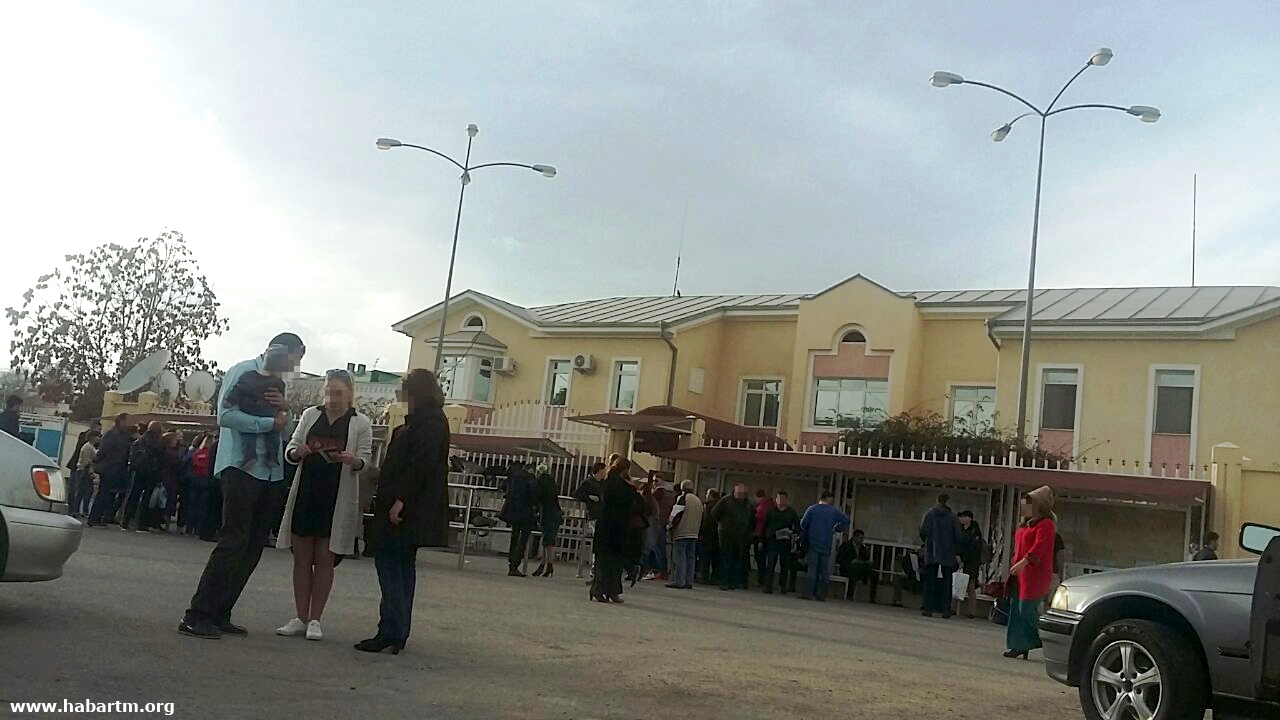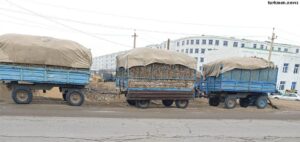
Turkmenistan: Poverty Drives Ever More People to Beg on Streets, Despite Official Claims of Improving Standard of Living
31.03.2019

Notices have been posted on public transport in Turkmenabat, the administrative center of Turkmenistan’s eastern Lebap region, reminding passengers they need to pay their electricity bills every month. If they fail to do so, their electricity will be cut off and their case will be sent to court.
From the time of the country’s first president, Saparmurat Niyazov, right up until January 1, 2019, consumption of natural gas, electricity and water was free for the people of Turkmenistan. In September 2018 President Gurbanguly Berdimuhamedov signed a decision “On regulating the supply of electricity, gas, drinking water and table salt to the population of Turkmenistan”, while one of the reasons given for introducing payment for public utilities was the “noticeable increase” in the income of the population.
Observers think the decision was more likely dictated by the deteriorating state of Turkmenistan’s economy — the state coffers have to be filled somehow. The authorities prepared in advance for the cancellation of subsidies — gas and water meters were installed across the country throughout 2017-18. It even got to the point that for vehicles to pass the annual safety check, drivers had to show a certificate from the housing management to confirm that all the necessary meters had been installed in their homes.
Electricity has proved to be the most expensive item, especially in large families. The state used to set a ceiling of 35 kWh a month for every member of a family registered at the family address, so the more people in the family, the cheaper electricity became. Many families did not exceed the free limit at all, so paid nothing for their electricity.
Now the opposite is the case — there are no free allocations of electricity, and families pay according to the meter reading.
“In the current heat, people really notice how much they’re paying for electricity,” a resident of Turkmenabat said. “Whoever has air conditioners keeps them on round the clock. It’s the only way to survive.”
According to the source, many poorer families are adapting to “market relations” — that was another of the reasons given for cancelling free utilities — for example, they no longer use electric kettles or irons, since they consume a lot of electricity.
A family of four, living in a privatized, two-room apartment, just over 30 m² in area, pays 27 manats a month for electricity (approximately $1.5). This is after economizing and not using electric kettles or heaters in winter. They use gas to boil water for tea and for heating in winter, which works out much cheaper.
“When you go to the gas utility to pay your bill, they ask you to come back at the end of the year as the sum is so small. It’s the same at the water utility,” the source told turkmen.news.
The family paid around 200 manats (just above $11) over the past six months for all public utilities, including garbage disposal and sewage. Two people in the family have permanent work, so paid utilities have not hit them too hard in the pocket, but there are many people in the city who survive on casual work and live in non-privatized housing. The residential fee for a two-room apartment is around 400 manats (approximately $22) a year.
“The electricity inspectors are always on their backs. Their workers immediately cut the cable for not paying on time, and the family has to pay to be reconnected,” the source said.
He thinks the notices on public transport are aimed at precisely these families.
Meanwhile, gas meters have not yet been installed in some apartment blocks in Turkmenabat, Dashoguz, and Ashgabat, as there are no meters available.

31.03.2019

08.06.2019

25.01.2019

Petrofac Back in Favour in Turkmenistan After Falling Foul of Berdimuhamedov
18.03.2024

Murder and Suicide at Troubled Turkmen School
28.02.2024

Turkmen Prosecutor’s Office Claims Baloch Detainee’s Fatal Wounds Were Self-Inflicted
01.02.2024

Low Prices Lead Turkmen Farmers to Sell Cotton Harvest Residues for Fodder
19.01.2024

Young Man Tortured to Death by Law-Enforcement Officers in Turkmenistan (video)
21.12.2023
Tell us!
Add comment
your e-mail will not be published